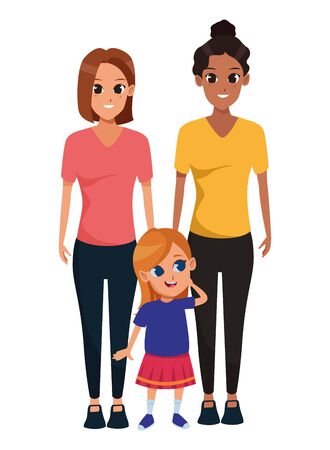Introduction to Nannies and Childminders in the UK
When it comes to choosing childcare in the UK, two popular options are nannies and childminders. Both play vital roles in supporting families, yet they differ significantly in their approach, qualifications, and daily routines. Understanding these differences is essential for parents who want to provide the best possible environment for their children’s development and emotional well-being.
Nannies are employed by families to care for children within the family’s own home, often providing one-to-one attention and a tailored routine that aligns closely with the parents’ preferences. In contrast, childminders usually look after several children from different families in their own homes, offering a more social and communal atmosphere that can encourage early social skills.
Both nannies and childminders are regulated in the UK, but the standards and requirements differ depending on their role. This initial understanding sets the stage for exploring which option might be better suited to your family’s unique needs, values, and lifestyle.
Key Differences in Roles and Responsibilities
When exploring childcare options in the UK, understanding the distinctions between a nanny and a childminder is crucial for parents seeking the best fit for their family’s unique needs. Both roles support children’s development and well-being, yet their approaches, responsibilities, and work structures vary significantly.
Duties: Personalised vs Group Care
Nannies typically provide one-to-one care within your home, focusing on your children’s individual routines and preferences. This allows them to tailor activities, meals, and learning opportunities to each child’s developmental stage and personality. In contrast, childminders usually care for several children from different families in their own homes, creating a group setting where children learn social skills through shared play and interaction.
Comparison of Key Duties
| Nanny | Childminder | |
|---|---|---|
| Location | Family’s home | Childminder’s home |
| Number of Children | Usually one family at a time | Multiple families (small groups) |
| Main Focus | Individual care & tailored activities | Group care & socialisation |
| Additional Tasks | Light housework related to children (e.g. laundry, meal prep) | Primarily childcare (some may offer meals/snacks) |
Working Hours: Flexibility and Structure
Nannies are generally employed for set hours that suit your family’s schedule—this could be full-time, part-time or even live-in arrangements. They often offer greater flexibility regarding evening or overnight care, adapting around parents’ work commitments. Childminders usually operate during standard working hours (e.g., 8am–6pm) and follow local authority guidelines on maximum child numbers, which means they might have less flexibility outside these hours.
Summary Table: Working Hours & Flexibility
| Nanny | Childminder | |
|---|---|---|
| Typical Hours | Bespoke to family needs (can include early mornings, evenings, overnights) | Fixed hours (usually weekdays, standard office times) |
| Holiday Cover | Arranged with employer; flexible but dependent on contract | Follows term-time/holiday schedule; may close during holidays or illness |
The choice between a nanny and a childminder depends on what you value most—personalised attention and flexibility or a group environment with set routines. Understanding these core differences will help you make an informed decision that supports both your child’s emotional growth and your family’s lifestyle.

3. Regulations, Qualifications, and Safeguarding
When it comes to choosing between a nanny and a childminder in the UK, understanding the legal requirements, training, and safeguarding standards is vital for your familys peace of mind. Both roles are dedicated to supporting children’s development, but their professional frameworks differ in several important ways.
Legal Requirements and Registration
Childminders in the UK must register with Ofsted (or the equivalent body in Scotland, Wales, or Northern Ireland) if they care for children under eight for more than two hours a day in their own home. This registration ensures they meet national standards of care, including regular inspections. Nannies, on the other hand, are not legally required to register with Ofsted unless parents wish to claim tax-free childcare or childcare vouchers. Most nannies work in the family’s home and may join the voluntary part of the Ofsted Childcare Register, which offers reassurance but isn’t mandatory.
Qualifications and Training
| Childminder | Nanny | |
|---|---|---|
| Mandatory Qualifications | Early Years Foundation Stage (EYFS) training, Paediatric First Aid | None by law (but often Paediatric First Aid and childcare qualifications preferred) |
| Ongoing Training | Required as part of Ofsted registration (safeguarding, food hygiene) | Not required but many undertake relevant CPD courses |
Safeguarding Standards
Safeguarding is central to both roles, ensuring your child is safe emotionally and physically. Childminders undergo rigorous checks including DBS (Disclosure and Barring Service), home safety assessments, and regular Ofsted inspections. They must have robust safeguarding policies in place.
Nannies should also have an enhanced DBS check and paediatric first aid training. While nannies do not face routine inspection, many families set clear expectations around safeguarding and ongoing communication, reflecting a strong partnership approach.
Choosing What’s Right for You
If regulatory oversight and formal qualifications provide reassurance for your family’s needs, a registered childminder may be ideal. If you value flexibility or want care within your own home environment, a qualified nanny—especially one on the voluntary Ofsted register—can offer peace of mind too. Always discuss your expectations openly to ensure both safety and a nurturing environment that supports your child’s growth.
4. Costs and Financial Considerations
When choosing between a nanny and a childminder in the UK, understanding the financial side is key for many families. Both options come with distinct cost structures, funding opportunities, and financial implications that may influence your decision.
Typical Costs: Nannies vs Childminders
Nannies generally cost more than childminders because they offer one-to-one care in your own home and may take on additional household duties. In contrast, childminders look after children in their own homes, often with a small group of children, making their hourly rates lower.
| Type | Average Hourly Rate (UK) | Care Location | Additional Costs |
|---|---|---|---|
| Nanny | £12–£16 per hour (gross) | Your home | Employer’s NI, holiday pay, pension, food/travel expenses |
| Childminder | £5–£7 per hour (per child) | Childminder’s home | Food/outing fees, sometimes pick-up/drop-off charges |
Funding Options and Support Schemes
The UK government offers several schemes to help families manage childcare costs:
- Tax-Free Childcare: Available for both nannies (if registered) and childminders. You can get up to £2,000 per child per year towards childcare costs.
- 15 or 30 Hours Free Childcare: Primarily available for 3-4 year olds with Ofsted-registered childminders; rarely applies to nannies.
- Universal Credit: Can cover up to 85% of childcare costs for eligible working parents using registered providers.
Comparing Overall Affordability
Nannies may suit families with multiple children, as their cost does not rise significantly per child. Childminders charge per child, which can add up for larger families but may be more affordable for those with just one child. It’s important to factor in hidden costs such as sick pay, holiday cover, and additional activities when comparing overall affordability.
Key Takeaway for Families
Your choice between a nanny and a childminder will depend on your family’s specific needs, budget constraints, and eligibility for government support. Carefully considering the costs involved—and what each option includes—will help you make an informed decision that best supports your family’s daily life and emotional wellbeing.
5. Impact on Child’s Development and Family Dynamics
Choosing between a nanny and a childminder in the UK is more than just a practical decision—it deeply shapes your child’s psychological growth and the unique tapestry of family relationships. Both options offer distinct environments, each with its own set of opportunities and challenges for your child’s emotional, social, and cognitive development.
The Psychological and Social Landscape
Nannies often provide care within the child’s home, offering one-to-one attention and routines that echo family life. This can foster a secure attachment, allowing children to feel emotionally safe and understood. The continuity of care with a nanny may encourage stronger bonds not only with the caregiver but also reinforce the parent-child connection, as routines and values are closely aligned with those at home.
Childminders, on the other hand, typically look after several children in their own homes. This setting provides early exposure to group dynamics, encouraging social skills such as sharing, cooperation, and conflict resolution. Children learn to navigate relationships outside the immediate family, which can ease transitions into nursery or school settings later on. However, individual attention may be more limited compared to a nanny arrangement.
Comparing Developmental Impacts
| Aspect | Nanny | Childminder |
|---|---|---|
| Emotional Security | High—familiar environment, consistent caregiver | Moderate—new environment, shared attention |
| Socialisation | Limited—mainly adult interaction unless playdates arranged | High—regular peer interaction in small groups |
| Cognitive Stimulation | Tailored activities based on child’s interests | Diverse activities inspired by group setting |
| Parent-Child Relationship | Closer alignment of routines and values; easier communication about child’s needs | Potential for broader perspectives; parents adapt to another caregiver’s approach |
Family Dynamics Considerations
A nanny becomes an integral part of the household, often adapting to your family’s rhythms and traditions. This can lead to seamless communication but may require clear boundaries regarding roles and expectations. With a childminder, families are introduced to new routines and influences, which can enrich children’s experiences but also call for flexibility from parents in accommodating different caregiving styles.
Ultimately, your choice will shape not only your child’s daily experiences but also how you connect as a family unit. Reflecting on what suits your family’s emotional needs, lifestyle, and long-term aspirations is key to supporting both healthy development and harmonious relationships at home.
6. Which Childcare Option Fits Your Family Best?
Choosing between a nanny and a childminder is a deeply personal decision, influenced by your familys unique needs, routines, and values. As you reflect on the differences outlined above, its important to consider not just practicalities, but also the emotional and developmental impact of each option on your child.
Reflective Questions for Parents
- What are your working hours and how much flexibility do you require?
- Does your child thrive better in a home environment or with more social interaction among peers?
- Are you seeking someone who can tailor activities and care specifically to your child’s interests and developmental stage?
- How important is it for you to have control over your child’s daily routine and diet?
- What is your budget for childcare, considering ongoing costs as well as additional expenses like food or outings?
- Would your family benefit from the continuity of care that a nanny provides, or the community feel of a childminder setting?
Comparing Nanny vs Childminder: Family Needs at a Glance
| Family Need | Nanny | Childminder |
|---|---|---|
| Flexibility of Hours | High (can match family schedule) | Moderate (fixed hours, less flexibility) |
| Personalised Care | Individualised attention for your child(ren) | Cares for multiple children, less one-to-one |
| Social Interaction | Mainly with siblings/parents/nanny | Interaction with other children in small groups |
| Home Environment | Your own home; familiar surroundings | Childminders home; new setting for child |
| Cost-Effectiveness | Higher cost, especially for single-child families | Generally more affordable per hour/child |
| Regulation & Inspection | Ofsted registration optional (except some cases) | Must be Ofsted registered and regularly inspected |
| Parental Control Over Routine & Diet | Easier to manage and specify preferences | Some input, but routines set by childminder |
| Siblings’ Care Together | Easily accommodates siblings of different ages at once | Siblings can attend together if within age limits and spaces available |
| Back-Up Care (in case of illness) | No back-up unless arranged separately | No back-up; may close if childminder is unwell or on holiday |
| Cultural Fit (language, values, beliefs) | Easier to choose someone aligned with your family values and traditions | Diversity possible but less tailored to individual family culture |
Your Decision-Making Journey: Supportive Guidance for Parents
The right choice will support not only your childs growth and well-being but also the overall harmony of your household. Trust your instincts as parents—no one knows your child like you do. Talk openly with potential nannies or childminders about your expectations and concerns. Visit settings together as a family if possible, observe interactions, and ask about their approach to emotional development and daily routines.
If youre still unsure, consider trial sessions or asking for references from other UK parents. Remember: parenting is a journey of continuous learning. Whatever path you choose—nanny or childminder—your thoughtful reflection and involvement will nurture both confidence and resilience in your child as they grow.


